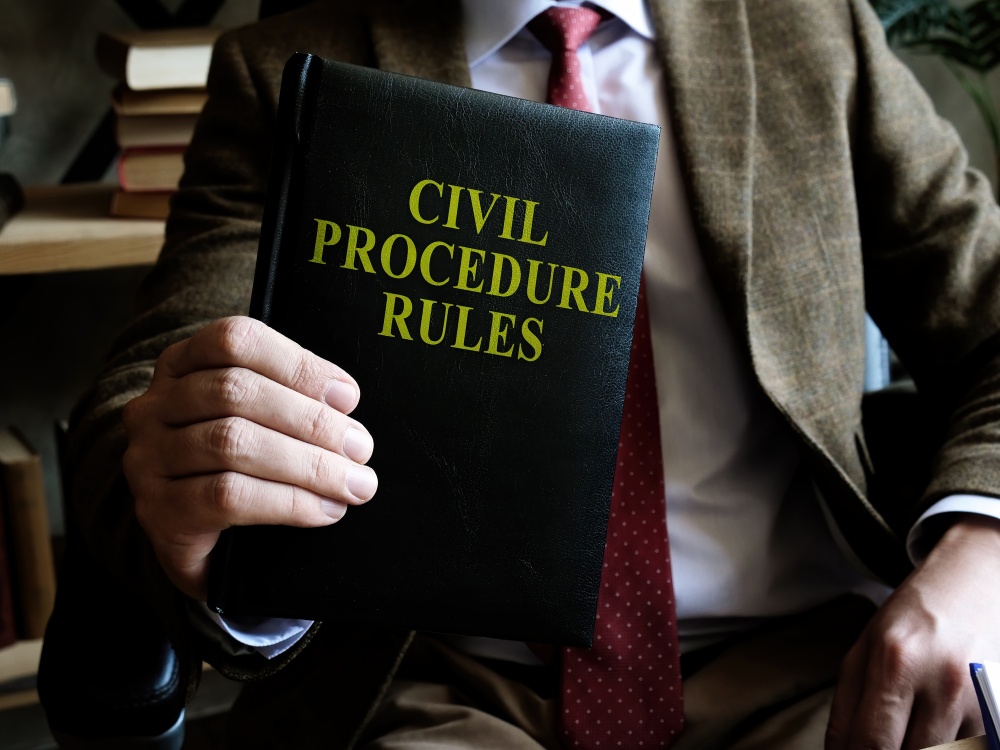We Hold These Rules to Be Self-Evident: Document Review, Relevance, and the Federal Rules of Civil Procedure

Sometimes, an argument or position may seem so self-evident or apparent that parties proceed on the assumption that it is correct without ever actually litigating the issue. Should a party decide to contest the issue, however, it can be difficult to find authority in support of the proposition. Such was the case in a recent decision involving an ESI protocol issued by the United States District Court for the Southern District of New York in United States ex rel. M. Frank Higgins & Co. v. Dobco, Inc., No. 22-cv-9599, 2023 WL 5302371 (S.D.N.Y. Aug. 17, 2023).
The parties there disagreed as to how searches for ESI should be conducted. Plaintiffs argued that search terms should be crafted to locate relevant documents, and the parties should then be required to produce all non-privileged documents hitting on one or more search terms. Id. at *4. Defendant countered that Plaintiffs’ request to “produce every single electronic communication that includes at least one of the to-be-determined search words, without considering relevance or proportionality to the needs of the case, is tantamount to engaging in an impermissible fishing expedition that is well beyond the scope of permissible discovery.” Id.
ESI Obligations Under Fed. R. Civ. P. 26 and 34
The Court agreed with Defendant. While “there is nothing improper about parties agreeing to produce all documents generated from an ESI search protocol,” as proposed by Plaintiffs, “the Court will not order an unwilling party to do so.” Id. ESI, like other forms of discovery, is subject to Rules 26 and 34 of the Federal Rules of Civil Procedure, “which only obligate a party to produce information that is relevant and responsive.” Id. The court recognized the reality that “[s]earch terms, even when narrowly tailored, may still produce some amount of non-responsive documents.” Id. Thus, Defendant was “entitled to review its documents to ensure that they are responsive to the discovery demands even if they hit on one or more of the parties’ agreed-upon search terms. Id. That said, the Court still expected Defendant “to promptly produce all non-privileged documents responsive to the parties’ document demands, except for those that it properly withholds based on an objection.” Id.
The parties had not yet discussed any proposed search terms, custodians, and date ranges to be applied to searches for ESI. Id. at *5. Negotiation of such search protocols should be “an iterative process that allows parties to narrowly tailor search terms, custodians, and date ranges to locate responsive and non-privileged documents for production. Id. A search protocol narrowly tailored and tested by both parties “can minimize concerns about fishing expeditions and the production of large quantities of non-responsive documents.” Id. However, in the absence of such discussions and negotiations, “arguments about relevance and burden are speculative at best.” Id. Based on these observations, the Court directed the parties to “meet and confer to negotiate search terms, custodians, and date ranges that are (1) narrowly tailored to achieve responsive search results, (2) proportional to the needs of the case, and (3) not unduly burdensome, costly, or voluminous.” Id.
Conclusion
The Court’s holding appears to be a straightforward and common sense solution to this issue. Typical practice has always been to review all documents hitting on agreed-upon search terms for relevance and responsiveness prior to production. Perhaps such an approach appeared so self-evident that it had never been litigated, as this Southern District of New York decision appears to be one of the first issued on the subject. Now, however, the issue has been clarified, and parties can streamline their negotiations over ESI protocols accordingly.
DISCLAIMER: The information contained in this blog is not intended as legal advice or as an opinion on specific facts. For more information about these issues, please contact the author(s) of this blog or your existing LitSmart contact. The invitation to contact the author is not to be construed as a solicitation for legal work. Any new attorney/client relationship will be confirmed in writing.

